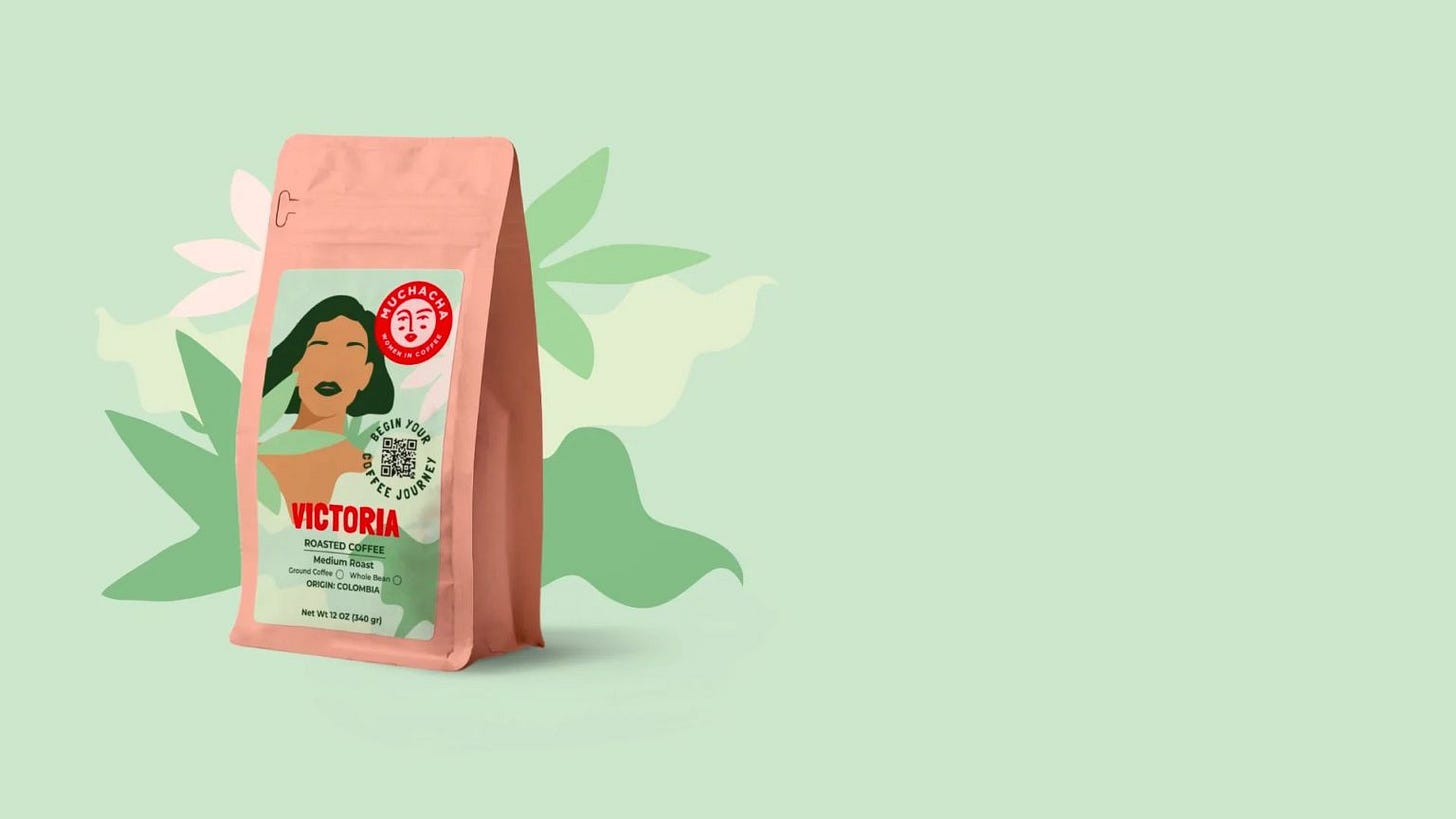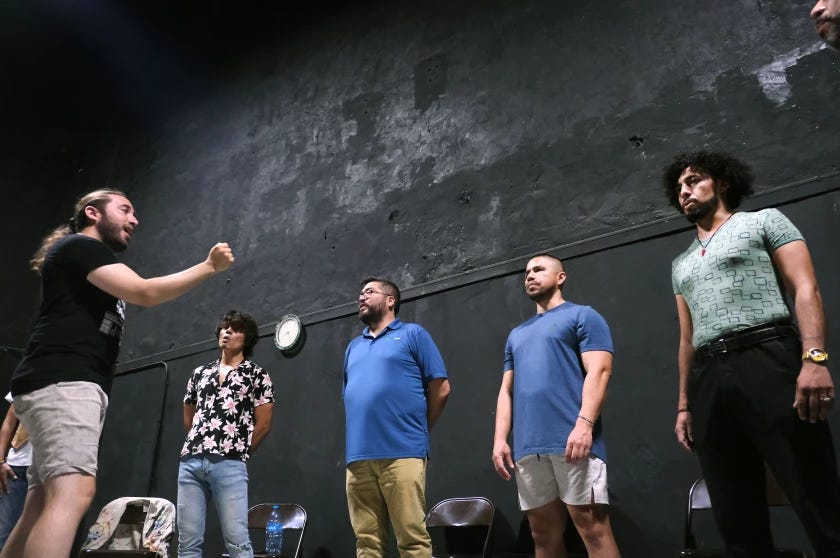Global Roundup: Jewish Women’s WWII Resistance, Colombian Women's Coffee Business , Kenyan Women Politicians Unite, Activists vs Anti-LGBTQ+ Bill in Iraq, Tijuana Gay Choir
Curated by FG contributor Inaara Merani
Partisan and photographer Faye Schulman. Via Ms. Magazine
Filmmaker Julia Mintz created the documentary Four Winters, which highlights stories of Jews who escaped and banded together to fight back against the Nazis during the Second World War. In particular, Mintz highlighted stories of Jewish women’s resistance, which are usually left out from mainstream histories.
The partisans recognized in this documentary were raised in close-knit Jewish families and communities that were eventually shattered by Hitler’s reign. They lived for years in the forest with practically no belongings and no shelter. They stole weapons and ammunitions and fought against the Nazis. Over 25,000 Jewish partisans joined and fought against Nazi attacks while hiding in the forests of Eastern Europe, Ukraine, and Belarus for four years. In the film, the eight remaining surviving partisans shared their stories about their lives before, during, and after the war.
What became really evident to me was that this was the final opportunity to hear the actual people who lived this history in their own words—for them to tell their truths, their experiences, their stories…I wanted to revisit the raw quality and have them be able to really share. - Julia Mintz
Mintz discussed the resilience of these Jewish women, who led by example. She also created a space to discuss these women’s experiences of sexuality, abortion, and motherhood at this time.
The resiliency and self-determination, the courage, ingenuity and grit these women embodied—it’s our collective…These women are an inspiration for their willingness to fight back against fascism and bigotry and hate and oppression, and ultimately fight for their lives. - Julia Mintz
Credit: wearemuchacha.com via Be Latina
Diana Hoyos has created Muchacha, a coffee company that exclusively works with women-owned companies. Muchacha’s specialty coffee bags are decorated with the names of the women who are leading in the coffee industry, such as Inés, Victoria, Valentina, and Alma.
After working for a number of Colombian companies that were mostly led by men, experiencing workplace harassment, and feeling that her talent was underestimated, Hoyos created Muchacha to creatively use her skills, while also promoting the empowerment of women in the coffee industry in Colombia.
This brand [Muchacha] is related to the way I see things and to the way I feel about women without losing our femininity.- Diana Hoyos
From farming and harvesting, to exporting and importing, to roasting the coffee beans, women are leading every step of the way under Muchacha’s supply chain. Every coffee bag also comes with a QR code where you can discover the women behind the coffee that you purchased, and can even get in touch with them.
The amazing part about this is how the brand has been able to connect so many people…More than just being a story about personal growth, [Muchacha] is a story about how women in different parts of the world can connect to create business opportunities that work for everyone and not just one individual. I feel more than proud and grateful. - Diana Hoyos
With 15 women now on board supporting its operations, Muchacha is promoting women’s leadership throughout the entire coffee supply chain, demonstrating the power of women-owned operations.
Dr Naomi Shaban fought to retain her Taveta parliamentary seat but was trounced by John Bwire. Photo credit: Nation Media Group
During the August 9 General Election in Taita Taveta County in Kenya, only one woman was elected as a Member of the County Assembly (MCA). Despite the results of the past election, women candidates across the region are coming together to form a caucus to help prepare for the next election and ensure that women remain a vital aspect of leadership in political spheres.
Although these women politicians have different political affiliations, they chose to put their differences aside to support one another in the fight for women’s participation in the Kenyan government. Increasing women’s participation is vital to see change happen for women and other gendered minorities.
As women, we must stand up for one another so that we support our own. We will achieve this if we come together. - Patience Nyange
This past election saw more women candidates run than ever before. Many did not win due to factors out of their control – lack of available resources and networks, stigmas, lack of community support, financial difficulty, patriarchal domination of government structures – but these women are hopeful for the 2027 elections. With this caucus in place, the women of the Taita Taveta region can work together to plan for the future of women in government.
Activists from pro-LGBT group Rasan pose in front of murals in Sulaymaniyah, Iraqi Kurdistan, in 2018 (supplied) via Middle East Eye
A recent bill proposed in Iraq, by an MP from the Kurdistan Islamic Union, could mandate a year in jail or a fine of up to 5 million Iraqi dinars for activists supporting LGBTQ+ rights. Activists in the Kurdish region have condemned the proposed legislation, which would effectively ban LGBTQ+ activism.
The proposed bill can also punish any company, media institution, or civil society organization supporting LGBTQ+ rights by suspending their work permits. Activists have argued that these changes would make life much harder for the gay community in the Kurdish region, a region where several members of the LGBTQ+ community have been killed.
The bill is an attempt to completely stop LGBTQ+ advocacy in [Iraqi Kurdistan]. This would have devastating effects on the LGBTQ+ community, as we will no longer be able to speak out about the discrimination and violence we face without the fear of being prosecuted…This bill is a direct violation of human rights and must be stopped. - Zhiar Ali, Kurdish LGBTQ+ activist
Same-sex relationships have been legal in Iraq for almost two decades, yet political and religious leaders have repeatedly rallied against LGBTQ+ rights. Many members or suspected members of the LGBTQ+ community have faced death threats, attacks, and murder. Despite the homophobic sentiment that exists within the region, Iraqi Kurdistan has been seen as a more liberal environment, which has created a space for LGBTQ+ activism to emerge. Activists will continue to protest against the proposed bill and continue to advocate for LGBTQ+ rights.
Vocal coach Israel Rodriguez, left, conducts a rehearsal focusing on vocal exercises. David Maung / For the San Diego Union-Tribune via LA Times
The Tijuana Gay Men’s Chorus is one of two active gay men’s choruses in all of Mexico. In a city where the LGBTQ+ community continues to face discrimination and prejudice, this chorus group strives to educate others to overcome stigmas, and bring visibility to the community.
Sometimes people think that we are just like running naked in the streets and going to parties every night and being crazy. But we are actually very creative people and we are very talented people and we are showing that. - Francisco Madrid, member of the chorus
While LGBTQ+ rights in Mexico have advanced, many queer people continue to experience discrimination and backlash. In April, the Mexican Legislature voted to ban conversion therapy; but the Baja California governor vetoed the bill, thereby allowing parents to decide if their children should be sent to conversion therapy providers, as long as they are not forced. Additionally, in recent years, Mexico has seen a rise in the number of murders of members of the queer community.
In light of the recent political landscape, the Tijuana Gay Men’s Chorus has continued to create a safe space for Tijuana’s gay and trans community. The group’s slogan is “music, visibility and community”.
That’s the power of music…I mean every time that I feel sad or down — actually I play the guitar when I am stressed out, and I feel better. I would say the truth is that Mexico is not the safest place in the world, but I think there are a lot of good activities that you can find in TJ and this is one of them. - Francisco Madrid
Inaara Merani (she/her) recently completed her Masters degree at the University of Western Ontario, studying Gender, Sexuality, and Women’s Studies with a specialization in Transitional Justice. In the upcoming years, she hopes to attend law school, focusing her career in human rights law.
Inaara is deeply passionate about dismantling patriarchal institutions to ensure women and other marginalized populations have safe and equal access to their rights. She believes in the power of knowledge and learning from others, and hopes to continue to learn from others throughout her career.






